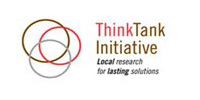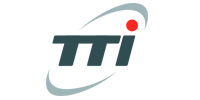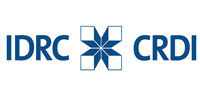
Issue 8 | December 20, 2019
Unlocking Uganda’s Growth Potential in the Digital Era
Keith Muhakanizi | @ACODE_Uganda
 The “Digital Era” refers to a time in which there is widespread, ready and easy access to, sharing of, and use of information (knowledge) in electronically accessible (i.e., digitized) form, in economic activities. Uganda’s third National Development Planning (NDP III) framework identifies digital transformation and particularly ICT as one of the economic development pillars required to gain national competitive advantage. The advent of the “Digital Era” can bring about a permanent increase in productivity and hence potential output. By taking advantage of the reduction in costs brought about by the ICT revolution, greater output can be produced with the same level of or less inputs. Therefore, in the digital era, the rate of growth of real output is likely to be higher than previously.
The “Digital Era” refers to a time in which there is widespread, ready and easy access to, sharing of, and use of information (knowledge) in electronically accessible (i.e., digitized) form, in economic activities. Uganda’s third National Development Planning (NDP III) framework identifies digital transformation and particularly ICT as one of the economic development pillars required to gain national competitive advantage. The advent of the “Digital Era” can bring about a permanent increase in productivity and hence potential output. By taking advantage of the reduction in costs brought about by the ICT revolution, greater output can be produced with the same level of or less inputs. Therefore, in the digital era, the rate of growth of real output is likely to be higher than previously.
ICT has increasingly become a major element for accelerated economic growth all over the World. The aspiration of Agenda 2030 under SDG 9 is to significantly increase access to information and communications technology and provide universal and affordable access to the internet. In addition, Agenda 2063, (Goal 10) aspiration is to double ICT penetration and contribution to GDP. The possession of skills in Information and Communication Technology (ICT) is therefore becoming a necessity in this highly driven digital era, and as a country, we haven’t been left out of the digitalization loop. We have continued to reinforce efforts towards digital transformation, and the ICT sector in particular has grown at an average of 6.9% over the last four fiscal years. In fact, in 2017, Uganda advanced five places in the International Telecommunication Union’s ICT Development Index, placing it 20th in Africa and 2nd with in East Africa.
According to a World Economic Forum report, at least 133 million new roles generated as a result of the new division of labor between humans, machines and algorithms, may emerge globally by 2022. By then, 85% of companies across the World will have to expand their adoption of technologies such as data analytics, cloud computing and the general use of internet. This presents an opportunity of employment for the IT skilled and would go a long way in reducing the prevalent unemployment especially among the youth. In order to benefit from this transition, it is vital that we intensively invest in bridging the digital skills gap through; - digital-up skilling and reskilling to strengthen capacity for institutions and ICT professionals; encourage and enable the youth to improve ICT-related studies and enhance their digital skills; and Equip young people with basic digital skills to enable them consume content and ideas produced by others.
So far, Uganda has embarked on a number of measures including; - equipping the young generation with basic ICT knowledge by incorporating this in our secondary school Advanced level curriculum; Improving the legal and regulatory framework; Enhancing ICT research and innovation; and Increasing the national ICT infrastructure coverage.
The adoption of Technology impacts on growth prospects through various channels;
- Reduction in the cost of information and hence transaction costs: Digitalization of information makes it easily accessible by the user and therefore reduces the encumbrances that would otherwise be met in collecting the same information. This in turn reduces the cost of operation. For instance, the establishment of information bureaus such as the National Information Technology Authority (NITA) which is established to coordinate and regulate Information Technology Services in Uganda, ensures that all the end-users such as Bank can easily obtain information regarding their customers by making reference to the bureau. This reduces costs that would be incurred for background checks when dealing with a particular customer.
- Increase in Timeliness of relevant information: Timely dissemination of economically relevant information allows for timely policy measures / decisions. Also the extension of the digital transformation to other sectors particularly health, has benefits for social welfare, by for example enabling early diagnosis of ailments and hence timely medical interventions. Quality and timely medical interventions reduce the mortality rate with in the country.
- Enhanced efficiency in revenue collection: Digitalization holds huge gains for tax administration, as digital technologies have the potential to revolutionize compliance and enquiry /audit work. The OECD, in their 2018 report shows how digitalization has already had a threefold positive impact on tax compliance, improving taxpayer services and reducing tax compliance burdens. For instance, data recording software adopted by several tax administrations that notes sales data at the time of a transaction and can be submitted directly to tax authorities have already increased some countries’ value-added tax (VAT) revenues by up to 20%. The use of digital innovations such as digital stamps also reduces the occurrences of tax evasion. Enhanced revenue mobilization implies more resources for public investments and other expenditures.
- Increased productivity and hence output: According to an OECD report on Digitalization and Productivity (2017), firms that adopted digitalization tended to be more productive than average. The productivity gains are as result of increased efficiency in the production process, such that more output is realized for the same level of or less inputs.
Through digitalization, there is timely receipt of information and communication. This paves way for Specialization and division and subdivision of labor where different stages of production can be undertaken by different specializing groups which efficiently deliver to each other. Specialization can result into lower costs of production, greater output, and more new varieties of products and services. Reductions in costs translate directly into increases in productivity which in turn reduces the upward pressure on prices and keeps the rate of inflation low. - Improved Quality of Output: Technological advancement brings with it access to a pool of information that can be exploited to improve the quality of output. The quality of output is also directly improved through the use of better equipment that is able to produce more efficiently.
- Extended market access: Digitalization makes it increasingly possible for businesses to reach markets in jurisdictions in which they don’t have physical presence. The use of the digital platform allows for access to the global market as sellers are able to market their products online, receive orders from all over the world and arrange delivery of items all without any physical contact except through the online platform. Such platforms have made an upsurge in the 21st century making huge fortunes and contributions to their economies, for example; - Amazon, Alibaba, EBay etc
- Reduction in the costs of market formation / penetration: The costs incurred in market formation/ market penetration are largely reduced by the adoption of digitalization. Costs that would otherwise be sunk into the rudimentary methods of advertising can then be saved by simply running adverts on social media platforms. These not only reach a wider audience of social platform users, but also cost way less.
- Digitalization also enhances transparency and hence deters the occurrence of fraud corruption and misuse of public resources. With digitalization, transactions can be traced with ease and therefore the abuse of resources is limited to a great extent.
- Cyber Security Hackers. Digital platforms are prone to hacking (illegal access to information software. The hackers can then alter information or maliciously misuse the information.
- Digital platforms are also prone to viruses which can result into destruction or loss of data / information.
- Digital transactions are also susceptible to cyber fraud. This necessitates the establishment of an efficient legal and regulatory framework.
Mr. Keith Muhakanizi is the Permanent Secretary/Secretary To The Treasury Ministry of Finance, Planning and Economic Development
|
|





+256 312 812 150 | Leave a comment | Center for Budget and Economic Governance
Subscribe To Our News Letter | Edit Subscription | Unsubscribe